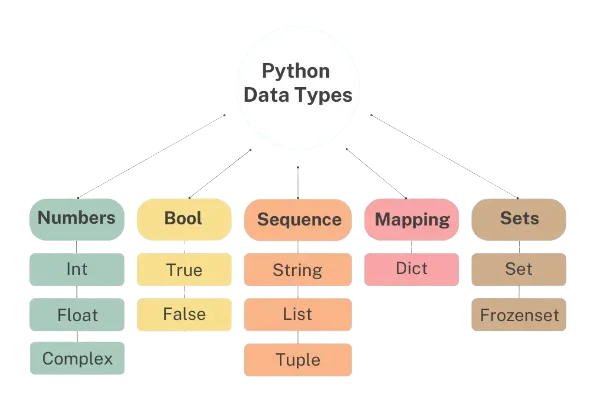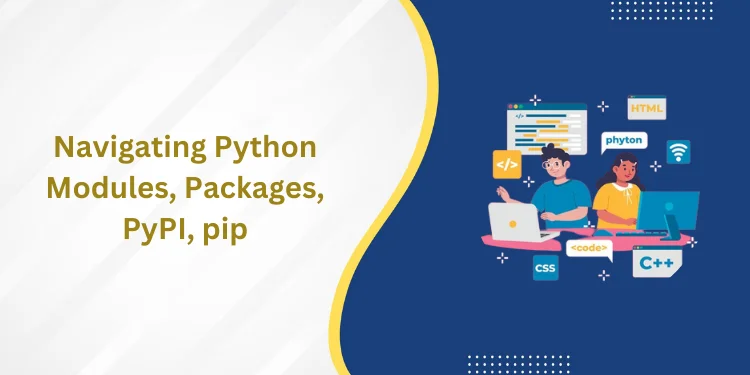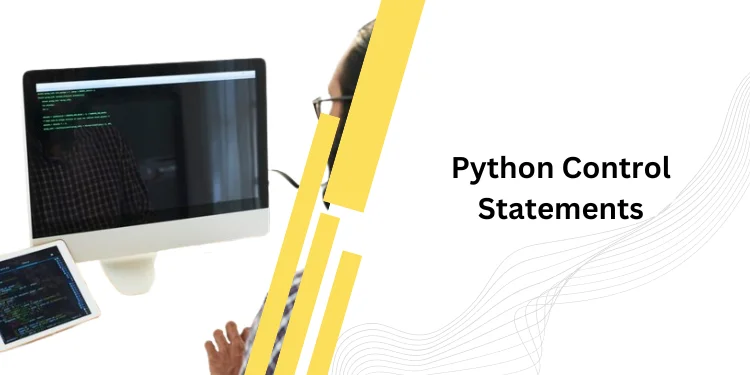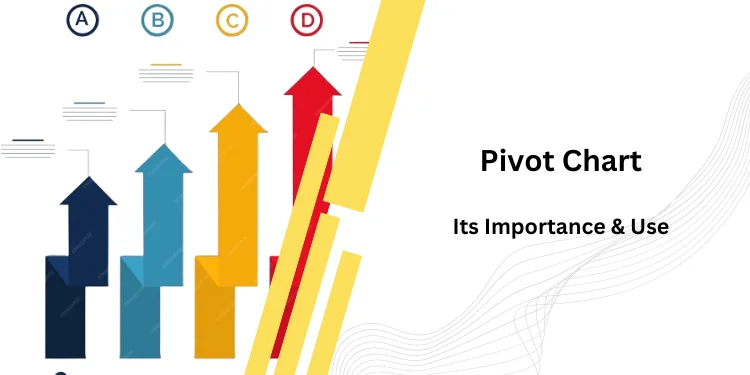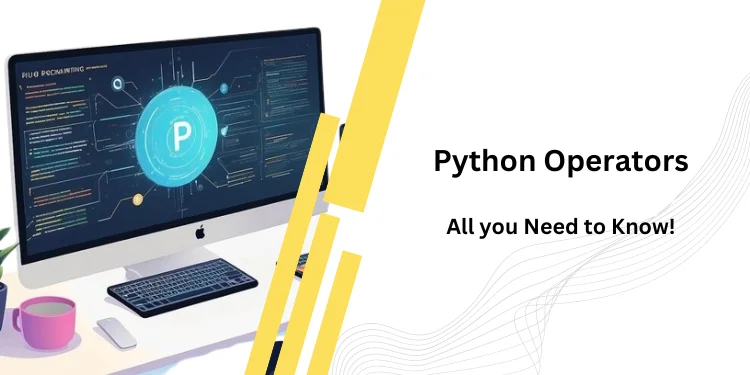Introduction to Cloud Computing Tools
Cloud Computing has evolved into a 21st-century and so have the Cloud Computing Tools, wonder that now it affects practically every industry. After switching to the cloud, 94% of organizations reported having improved their security concerns while 91% stated the cloud made meeting government regulatory requirements easier.
Cloud computing tools is the major high-tech invention of modern time. Smartphones and other online devices have witnessed quicker acceptance than any other technology in the digital world. Today, mobile devices are increasingly accessing cloud features. Companies are providing easy and full access to company resources in these devices to their employees which leads to an increased competitive advantage.
Applications of cloud computing can also be seen on social media platforms. Facebook, Instagram, Google Drive, Gmail, YouTube, and other entertainment platforms are just a few of the cloud-based services we use without even realizing it. The servers for all of these applications are maintained in the cloud. As a result, our data is secure and easily accessible in these applications.
By 2025, Over 100 zettabytes of data will be stored in the cloud. To put this into context, a zettabyte is one billion terabytes (or a trillion gigabytes).
In the same year, total worldwide cloud storage will exceed 200 zettabytes, with the cloud contributing for around half of it.
Requirements & Need for Cloud Computing Tools
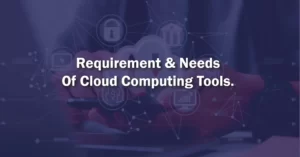
The requirements and need for cloud computing tools has grown in popularity with the rise of the cloud computing trend in various sectors.
These tools are quite useful for managing a wide range of cloud applications to secure our data. They combine, manage, monitor, optimize, and audit many types of data. Various cloud computing solutions can be very useful in a private, public, or hybrid cloud environment. Obtaining various resources of software and hardware, performing powerful processing, and obtaining storage facilities is pretty simple with the numerous cloud computing tools.
The top 10 cloud computing tools are listed in this article, and they can help the IT sector save money, optimize resources, and interconnect and manage applications in the cloud.
The list of the Top 10 Trending Cloud Computing Tools
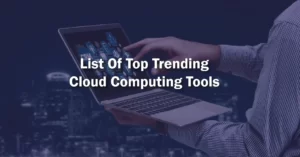
-
Cloudability
It’s a financial management cloud computing tools for tracking all cloud expenses throughout a company. It assists in identifying cost-cutting opportunities, preparing reports, and sending budget warnings and assistance via SMS and Gmail. It features APIs that allow it to connect cloud pricing and consumption data to a business or financial system. Cloudability tools allow IT managers to keep track of their public cloud spending and plan budgets for cloud services.
-
Cloudyn
This cloud computing tools is designed to save IT corporate money by preventing them from overpaying for Amazon cloud resources. Cloudy n’s services provide users with a control panel that allows them to see precise information about all of their virtual machine samples, databases, and storage. Cloudyn also offers insight into failed strategies for getting rid of them.
-
Informatica
Informatica is a widely used data processing tool for extracting, transforming, and loading data. It is one of the most widely used cloud computing applications for ETL in enterprises. Informatica cloud data integration is a cloud-based power center that makes data more accessible, reliable, and secure to help businesses make better decisions. Informatica Cloud Data Integration can help a company’s global, remote data warehouse and analytics operations, also it is one of the best cloud computing tools.
-
CloudHub
CloudHub is an integration platform as a service (iPaaS) that allows you to create new APIs on top of current data sources, link on-premises apps to cloud services, and more. It is a fully managed tool and avoids having to buy or maintain hardware, deal with virtual images, or manage cloud infrastructure. With a platform that handles over 60 billion transactions every month, you can be sure of high availability and performance. With the help of a built-in scalability feature, you can increase cloud capacity during times of high demand.
-
Chef
Opscode provides an open-source Ruby-based configuration management tool under the Apache license. Administrators can programmatically configure virtual systems and eliminate all repetitive manual processes with the help of a hosted Chef cloud system. Chef is a server configuration and management tool that combines with cloud-based platforms including Amazon EC2, Google Cloud Platform, Oracle Cloud, OpenStack, IBM Cloud, Microsoft Azure, and Rackspace to automatically provision and configure new machines.
-
Puppet
System administrators can use IT automation tools to automate repetitive activities, install essential applications quickly and easily, and manage infrastructure changes on-premise or in the cloud. It automates processes such as application configuration management, patch management, provisioning, discovery, operating system, and infrastructure audit and compliance on any platform of the IT infrastructure life cycle.
-
AtomSphere
Boomi AtomSphere is a single-instance, cross-cloud integration platform that has emerged as the ideal solution for companies looking for a partner to help them develop software applications by combining features and benefits from other apps. Integration has become more demanding and necessary for us as IT systems get more complicated. Dell Boomi AtomSphere is a cloud-native technology that supports you in quickly linking applications.
-
RightScale
RightScale is a cloud application development and infrastructure intermediary that enables enterprises to launch and manage applications across public, private, and hybrid clouds. It manages cloud computing infrastructure and applications by configuring, monitoring, and optimizing them. Various types of RightScale’s main products include:
-
RightScale Self-Service
A portal that provides on-demand access to public and private cloud infrastructures, such as Amazon Web Services (AWS), Microsoft Azure, and Google Cloud Platform. Self-Service also helps in automating and speeding up cloud application development.
-
RightScale Cloud Management
A cloud computing tools that helps in the design, deployment, and cloud management platform systems for businesses.
-
RightScale Cloud Analytics
A dashboard and reporting tool for monitoring, forecasting, and optimizing expenditures in public and private clouds Costs can be monitored by user, team, or vendor, and idle cloud resources can be identified with the tool.
-
RightScale Multi-Cloud Platform
A platform for private and public IaaS environments, such as AWS, Azure, and Google, that provides a single multi-cloud administration interface and application programming interface (API).
-
Enstratius
Enstratius is a cloud computing platform that meets the demands of organizations by providing cross-stage cloud architecture for private, public, and hybrid clouds. It enables self-service cloud resource provisioning and de-provisioning. This is one of the best cloud computing tools and users may control all cloud resources with one login, and enterprise authentication systems like OpenID and SAML 2.0 are supported.
-
Agility Platform
Agility refers to a company’s ability to respond to changes in the business environment quickly and cost-effectively. “The ability of an organization to rapidly adjust to market and environmental changes in productive and cost-effective ways,” according to Wikipedia. Cloud computing tools and apps are fast in numerous ways within that architecture.
The Agility Platform is a centralized control point that manages and secures an organization’s cloud applications. It comes with a policy engine that allows you to design and enforce a wide range of custom governance and security policies. This is one of the best cloud computing tools and it also comes with an end-to-end security model, which incorporates global access control.
Using the cloud computing tools means being more agile and delivering value to your organization. The ability to swiftly design, test, and launch software applications that drive corporate growth is sometimes referred to as agility in the cloud computing context. Instead of supplying and managing resources, Cloud Agility allows them to focus on other challenges such as security, monitoring, and analysis.
Conclusion
Cloud Computing Tools enable businesses to improve product development and marketing initiatives while also aligning IT infrastructure and management costs with the company’s goals and objectives. Cloud computing is a game-changing technology that has helped businesses in delivering products and services while also dealing with cyber-security challenges, large data management, and quality assurance.
Cloud computing tools and solutions have been used by businesses of all sizes, from startups to multinational corporations, to build applications and automate business processes. Moving to cloud computing has resulted in lower IT expenses, the ability to scale up or down according to company needs, and, most importantly, the ability to access the data at any time and from any location.
We hope you found the article to be informative and helpful.





